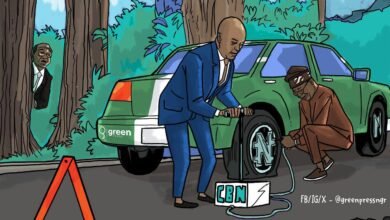
For nearly a decade now, the topic of state police has rent and stayed a significant space within Nigeria’s political discourse. But much has not been achieved with the debate although sometimes intense and grueling. Opinions have been divided over the subject with the most common concern being the tentative abuse of the emanating force by state governors. But after all these years of political ambivalence, the current administration seem to have arrived a landmark decision on the issue.
On the 15th of February 2024, in one of its timely Federal Executive Council meetings, the President of Nigeria, Bola Ahmed Tinubu reached a historic conclusion that gave the long withheld federal green light on the subject of state police. The meeting which had all the governors of the thirty-six states of the federation present ensured the agreement of the governors.
But state police, sophisticated like all sensitive national ideas, does not need only the assent of the president or the executive arm to become reality. The legislative arm, both in federal and state level, must pass the bill through the houses, debate it, and have the majority yes the motion. On the 20th of February 2024, in a speed symbolic of the dire nature of the reasons behind this renewed conversation on state police, a constitution amendment bill to introduce state police scaled second reading at the Federal House Representatives.
This historic move begins a journey to the legislative complexities waiting the state police initiative. When and if the Federal House of Representatives successfully passes the bill, there still will remain the upper legislative arm, the Senate, and the state houses of assembly. At least twenty-four state houses of assembly lies need to pass the bill.
While it would seem, however, that all the governors of the thirty six federating states have agreed at the Federal Executive Council meeting, we would betray our understanding of the realities of political subterfuge to not expect a few or many to through indirect means, attempt to stall or block the realization of the state police initiative.
But the recent speed with which the state police bill has been passing and receiving acceptance within the political circles is informed by a concern that has commonly held the country at ransom. Insecurity, materializing in the forms of banditry, kidnappings, illegal mining, vandalization, oil theft, and terrorism has not been so widespread and out of control. The present security architecture has proven inefficient and overwhelmed. It needs an overhaul. It needs a renewed approach, design, and strategy. The state police is one of the many renewed agenda of the president and now, more than ever, is the time for the Nigerians to rise above their fears and not only embrace but support this timely intervention.
It remains to be seen if the expediency of security will trump political sentiments.





